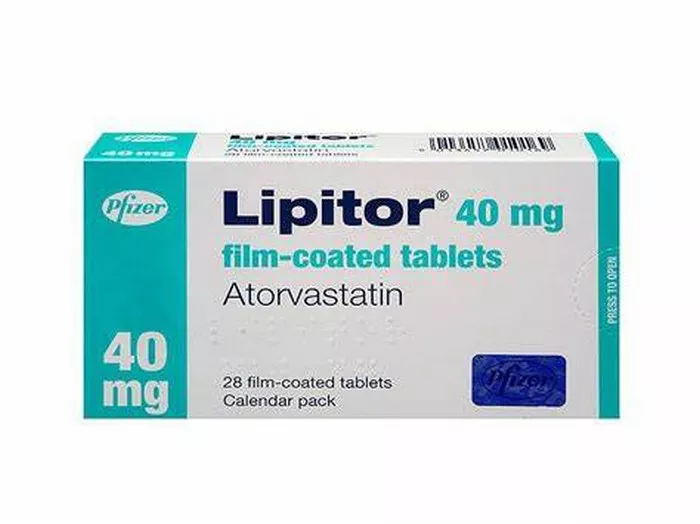Cardiovascular diseases (CVDs) are the leading cause of mortality worldwide, with atherosclerosis at their core. Atherosclerosis involves the build-up of fats, cholesterol, and other substances in and on your artery walls (plaque), which can restrict blood flow. The quest for effective strategies to manage and potentially reverse this condition has led to significant interest in the capabilities of statins, particularly Lipitor (atorvastatin calcium). This comprehensive exploration delves into the mechanisms by which Lipitor operates, its efficacy in managing plaque build-up, and its place within broader strategies for cardiovascular health improvement.
Understanding Atherosclerosis and Cardiovascular Risk
Atherosclerosis is a slow, progressive disease that may start in childhood. Over decades, plaque builds up inside the arteries, hardening and narrowing them, which can lead to coronary artery disease, heart attack, stroke, and other health problems. The plaque composition can vary but generally includes cholesterol, fatty substances, cellular waste products, calcium, and fibrin. A critical point of concern is when a plaque ruptures, causing blood clots to form that can severely restrict or block blood flow, leading to acute cardiovascular events.
Lipitor: Mechanisms of Action
Lipitor belongs to a class of drugs known as statins, which lower cholesterol levels in the blood by inhibiting the enzyme HMG-CoA reductase in the liver, the enzyme responsible for producing cholesterol. By reducing the amount of cholesterol in the blood, statins can help prevent the formation of new plaque and stabilize existing plaque, potentially reducing the risk of cardiovascular events. Statins are most effective at lowering low-density lipoprotein (LDL) cholesterol, often referred to as “bad” cholesterol because it contributes to plaque build-up.
Clinical Evidence on Statins and Plaque Reduction
Research over the years has provided insights into the role of statins in managing atherosclerosis. Several landmark studies have investigated the impact of statins like Lipitor on plaque volume and composition. The ASTEROID trial, for instance, used intravascular ultrasound (IVUS) to demonstrate that aggressive lipid-lowering therapy with rosuvastatin could lead to significant regression of atherosclerotic plaque in coronary arteries. While this study did not involve Lipitor specifically, it highlighted the potential for statins to not just halt but reverse plaque accumulation.
Further evidence comes from studies focusing directly on Lipitor. One notable study published in the “Journal of the American College of Cardiology” found that intensive treatment with atorvastatin led to a slight reduction in atheroma volume in patients with coronary artery disease. Although the reductions in plaque volume observed in such studies are relatively modest, they are significant from a clinical standpoint. The stabilization of plaque, meaning making it less likely to rupture, and the slight reductions in volume can substantially reduce the risk of heart attacks and strokes.
Evaluating the Broader Impact of Lipitor on Cardiovascular Health
Beyond plaque reduction, Lipitor and other statins have been shown to have several beneficial effects on cardiovascular health. These include improving endothelial function (the functioning of the inner lining of the arteries), reducing inflammation at the site of plaques, and decreasing the likelihood of clot formation. Statins also appear to have antioxidant properties that may further reduce the risk of cardiovascular events.
However, the decision to use Lipitor or any statin involves considering potential risks and side effects. Common side effects include muscle pain, increased risk of diabetes, and liver damage, though these risks are relatively low and need to be weighed against the substantial benefits in reducing cardiovascular risk.
Guidelines and Recommendations for Statin Use
Current guidelines recommend statin therapy for various populations at increased risk of cardiovascular disease, including those with existing CVD, those with LDL cholesterol levels above a certain threshold, individuals with diabetes aged 40 to 75 years, and those with a 10-year risk of cardiovascular disease above a certain level. The choice of starting a statin like Lipitor, as well as the intensity of therapy, is based on a comprehensive risk assessment.
Lifestyle Factors and Cardiovascular Health
It is crucial to note that while statins, including Lipitor, can play a significant role in managing cholesterol levels and reducing cardiovascular risk, they are most effective when used as part of a broader strategy that includes healthy lifestyle changes. Dietary modifications, regular physical activity, smoking cessation, and managing blood pressure and diabetes are all critical components of cardiovascular risk management.
Emerging Research and Future Directions
The landscape of cardiovascular disease management is continuously evolving. Emerging research focuses not only on further elucidating the mechanisms by which statins work but also on identifying new therapeutic targets and strategies for atherosclerosis treatment. This includes exploring the genetic factors that influence individuals’ responses to statins, developing new lipid-lowering drugs, and investigating the potential of combination therapies for enhanced plaque reduction and cardiovascular risk management.
Conclusion
Lipitor and other statins represent a cornerstone in the management of atherosclerosis and cardiovascular risk reduction. Their ability to lower LDL cholesterol, stabilize plaque, and slightly reduce plaque volume, alongside their other beneficial effects on cardiovascular health, makes them invaluable tools in the fight against cardiovascular disease. However, their optimal use involves careful patient selection, consideration of potential risks, and integration into a comprehensive approach to cardiovascular health that emphasizes the importance of lifestyle modifications and management of other risk factors. As research advances, the potential for further enhancing the benefits of statins and developing new therapeutic strategies offers hope for even more effective prevention and treatment of cardiovascular disease.


